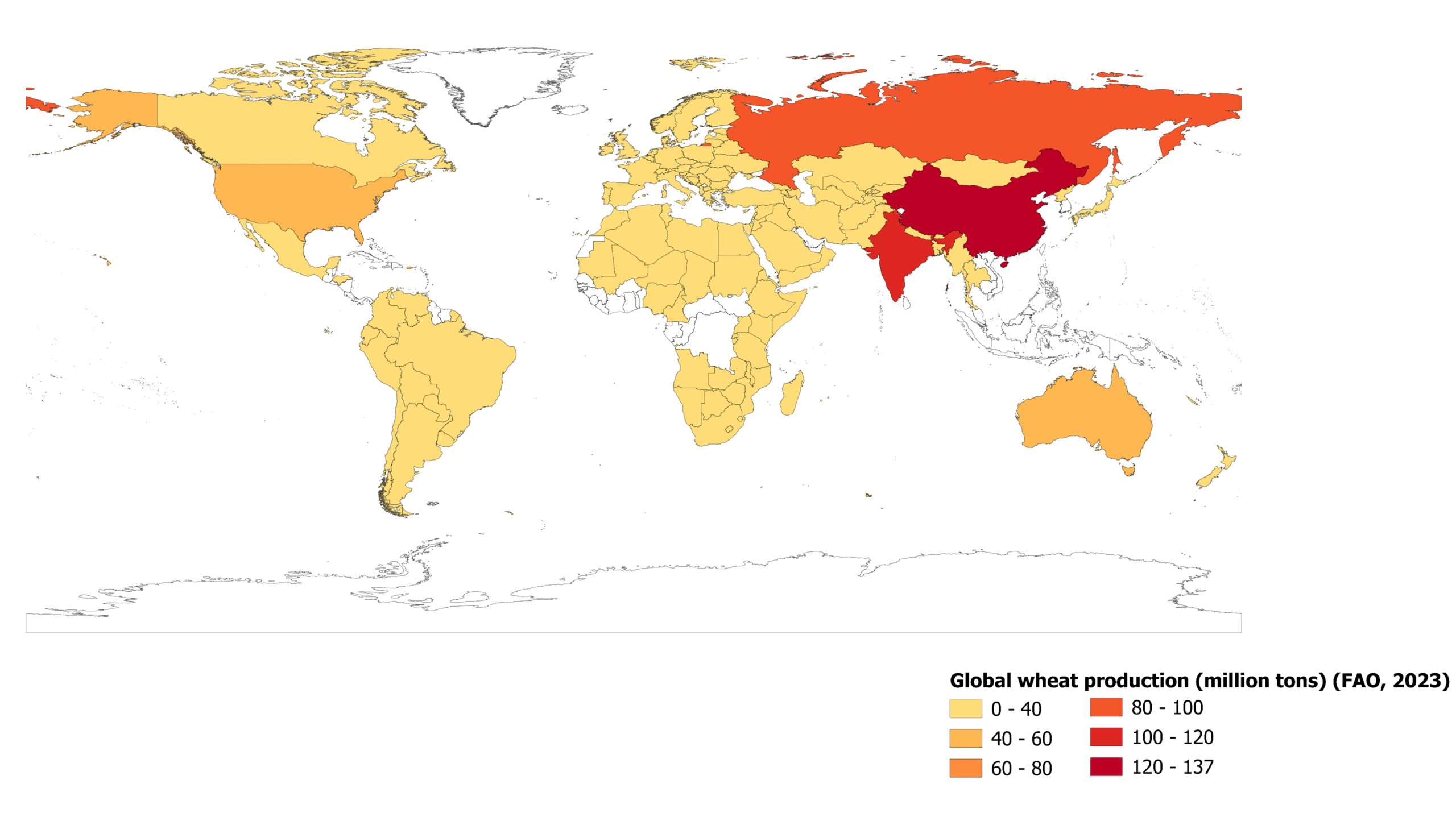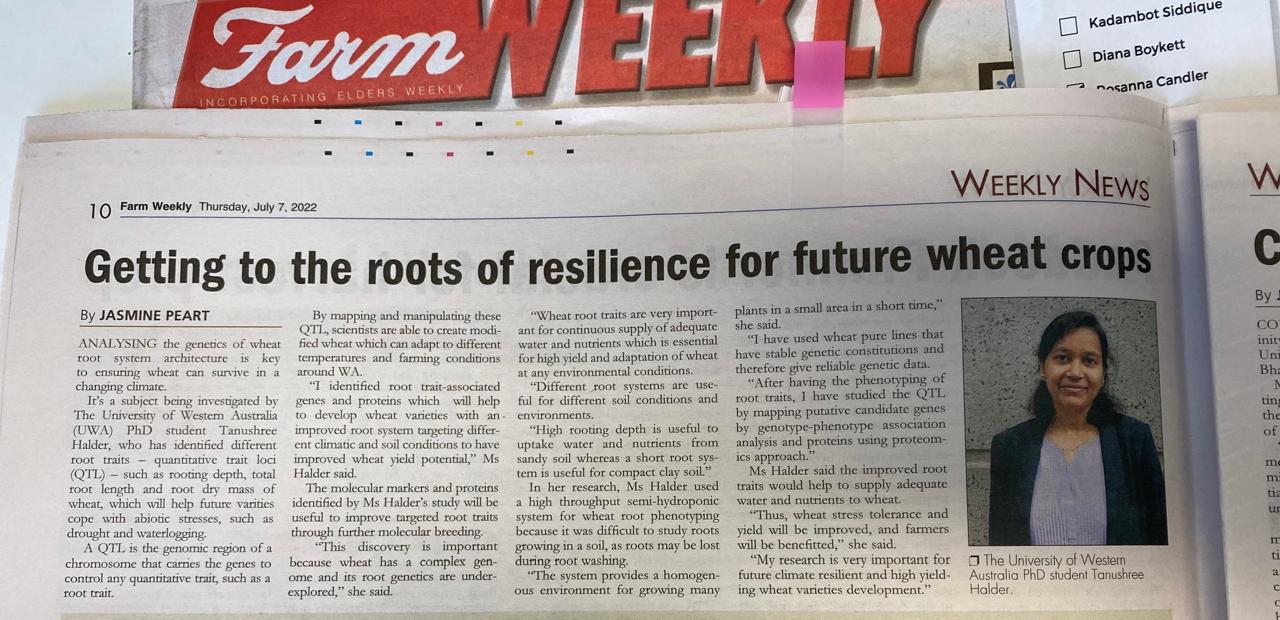Research Focus of Wheat Genetic Group
Our research group focuses on root trait improvement in wheat for developing high-yielding and climate-resilient varieties. Root system architecture (RSA) is the key plant part for supplying water and nutrients and providing anchorage to the plant in any environmental conditions, and thus different root traits play a crucial role in plant growth and development. However, due to the challenges of studying this below-ground plant parts, the role of RSA in different stresses, particularly heat stress, is still limited. Our research group investigates phenotype, physiology, biochemistry, cytology, anatomy, genetics and breeding to contribute to the development of heat-resilient wheat varieties. We collaborate with other universities and research organizations to conduct research. Currently, we are collaborating with The UWA Institute of Agriculture, Australia, and the University of Dhaka, Bangladesh for conducting a research project, “Unravelling the role of root traits for improving heat stress tolerance in wheat (Triticum aestivum L.)”, which is partially funded by SAU Research System.





